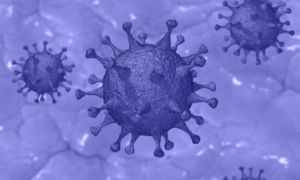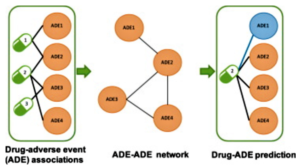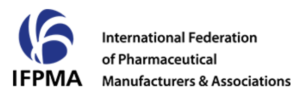- Cutting off H-1B visas will hurt the biopharma industry (statnews.com)
...Presidential Proclamation 10051 suspended immigration into the United States for anyone holding H-1B, J-1, and L visas, and suspended granting new ones. Most worrisome for the pharmaceutical industry is the ban on H-1B visas, because it will limit, and in some instances entirely prevent, biopharma companies from recruiting the specialized talent they need...the suspension and limitation are aimed at ensuring “that the presence in the United States of H-1B nonimmigrants does not disadvantage United States workers.” The proclamation ends on Dec. 31, at which point the limitations will cease or the administration may extend them as it sees fit...READ MORE
- Researchers identify nanobody that may prevent COVID-19 infection (phys.org)An alpaca nanobody neutralizes SARS-CoV-2 byblocking receptor interaction (nature.com)
Researchers at Karolinska Institutet in Sweden have identified a small neutralizing antibody, a so-called nanobody, that has the capacity to block SARS-CoV-2 from entering human cells. The researchers believe this nanobody has the potential to be developed as an antiviral treatment against COVID-19...READ MORE
- A huge experiment’: How the world made so much progress on a Covid-19 vaccine so fast (statnews.com)The coronavirus vaccine frontrunners are advancing quickly. Here's where they stand (biopharmadive.com)
Never before have prospective vaccines for a pathogen entered final-stage clinical trials as rapidly as candidates for Covid-19...The colossal impact of the coronavirus is motivating the speed, opening a spigot of funding and inspiring research teams around the world to join the hunt. But the astonishing pace of the progress is also a consequence of the virus itself: It is, scientifically speaking, an easier target for potential vaccines than other pathogens, and a prime candidate for cutting-edge vaccine platforms new to scientists’ toolkits...Vaccines typically take years, if not decades, to reach people; the record now is four years for the mumps vaccine. Here’s what has propelled the Covid-19 endeavor to eclipse prior efforts so far...READ MORE
A familiar family
An acute, not chronic infection
Cutting-edge approaches
Money, money, money
Regulatory nimbleness
The challenges ahead - New Machine Learning Tool Can Predict Adverse Drug Effects (drugtopics.com)Development of an adverse drug event network to predict drug toxicity (sciencedirect.com)
A new computer algorithm might be the next step toward accurate prediction of adverse drug reactions..Researchers from Harvard Medical School and the Novartis Institutes for BioMedical Research announced the creation of an open-source machine learning tool capable of predicting drug adverse effects (Aes)...The study, published in The Lancet journal EBioMedicine, examined 2 databases: 1 that reported adverse drug reactions and another with 184 proteins that specific drugs are known to interact with. Investigators constructed a computer algorithm to develop associations between the drug reactions and the 184 individual proteins...The algorithm discovered 221 associations, some known and some new. These associations indicated which proteins contribute to certain AEs and which may not...The new algorithm could help predict these AEs before the drug goes to human clinical trials, as well as before and after it enters the market...READ MORE
- AI Identifies Sex-Specific Adverse Events With High Precision (drugtopics.com)
Researchers have developed an algorithm that is able to accurately predict sex differences in drug response through the implementation of pharmacogenomic data...The study...presented AwareDX, a resource that uses machine learning to understand sex-specific adverse drug effects with the potential for use in drug discovery, repositioning, and pharmacogenetic studies, as well as for further analyses of electronic health records and clinical trials, according to investigators...Women are twice as likely as men to develop adverse drug reactions to a drug, partly due to differences in pharmacokinetics and pharmacodynamics that induce increased drug bioavailability and sensitivity to medication and women [remain] severely underrepresented in clinical trials...READ MORE
- Costa Rica researchers to trial coronavirus treatment from horse antibodies (reuters.com)Costa Rica researchers to trial coronavirus treatment from horse antibodies (scientificamerican.com)
Researchers in Costa Rica are due to begin trials of an inexpensive coronavirus treatment based on antibodies taken from horses injected with the SARS-Cov-2, the virus that causes COVID-19...Developed by University of Costa Rica’s Clodomiro Picado Institute, the equine antibodies medication is to be tested on 26 patients from mid-September...Costa Rican authorities hope to be able to begin applying the treatment more widely in hospitals if the results from the phase 2 study are encouraging. There are 471 hospitalized coronavirus patients in Costa Rica...Similar efforts are also underway in Argentina and Brazil, while scientists in Belgium are using llamas...READ MORE
- Exclusive: Chinese-backed hackers targeted COVID-19 vaccine firm Moderna (reuters.com)
Chinese government-linked hackers targeted biotech company Moderna Inc... earlier this year in a bid to steal valuable data...the U.S. Justice Department made public an indictment of two Chinese nationals accused of spying on the United States, including three unnamed U.S.-based targets involved in medical research to fight the COVID-19 pandemic. The indictment states the Chinese hackers “conducted reconnaissance” against the computer network of a Massachusetts biotech firm known to be working on a coronavirus vaccine in January...READ MORE
- Customizable synthetic antibiotic outmaneuvers resistant bacteria (sciencedaily.com)
Antibiotic resistance is one of the world's most urgent public health threats...Researchers at UC San Francisco are tackling antibiotic resistance using a different approach: redesigning existing antibiotic molecules to evade a bacterium's resistance mechanisms. By devising a set of molecular LEGO pieces that can be altered and joined together to form larger molecules, the researchers have created what they hope is the first of many "rebuilds" of drugs that had been shelved due to antibiotic resistance..."The aim is to revive classes of drugs that haven't been able to achieve their full potential, especially those already shown to be safe in humans,"..."If we can do that, it eliminates the need to continually come up with new classes of drugs that can outdo resistant bacteria. Redesigning existing drugs could be a vital tool in this effort."...READ MORE
- Special Report: COVID opens new doors for China’s gene giant (reuters.com)
As countries scramble to test for the novel coronavirus, a Chinese company has become a go-to name around the world...BGI Group, described in one 2015 study as “Goliath” in the fast-growing field of genomics research, is using an opening created by the pandemic to expand its footprint globally. In the past six months, it says it has sold 35 million rapid COVID-19 testing kits to 180 countries and built 58 labs in 18 countries. Some of the equipment has been donated by BGI’s philanthropic arm, promoted by China’s embassies in an extension of China’s virus diplomacy...But as well as test kits, the company is distributing gene-sequencing technology that U.S. security officials say could threaten national security. This is a sensitive area globally. Sequencers are used to analyse genetic material, and can unlock powerful personal information...READ MORE
- Industry Welcomes Global AMR Action Fund (biopharminternational.com)
Industry has welcomed the launch of the Global AMR Action Fund, which aims to bring two to four new antibiotics to patients by 2030 to tackle antimicrobial resistance...More than 20 biopharmaceutical companies are involved in the fund and have raised US$1 billion so far in new funding to support the clinical research of innovative new antibiotics to address the most resistant bacteria and life-threatening infections. The fund is an initiative of the International Federation of Pharmaceutical Manufacturers and Associations...“Unlike COVID-19, AMR is a predictable and preventable crisis. We must act together to rebuild the pipeline and ensure that the most promising and innovative antibiotics make it from the lab to patients,” said Thomas Cueni, director general of IFPMA...READ MORE










